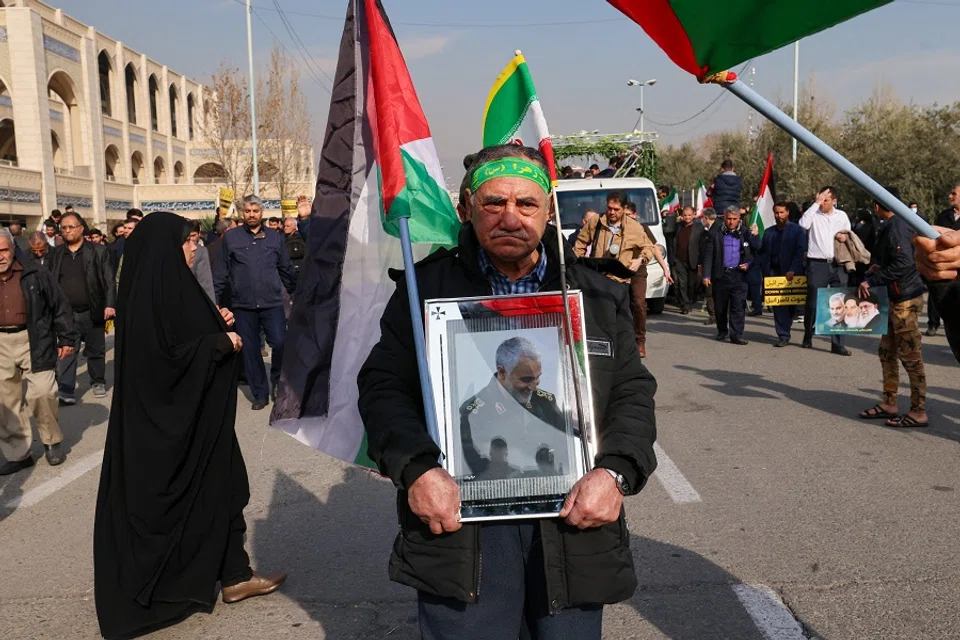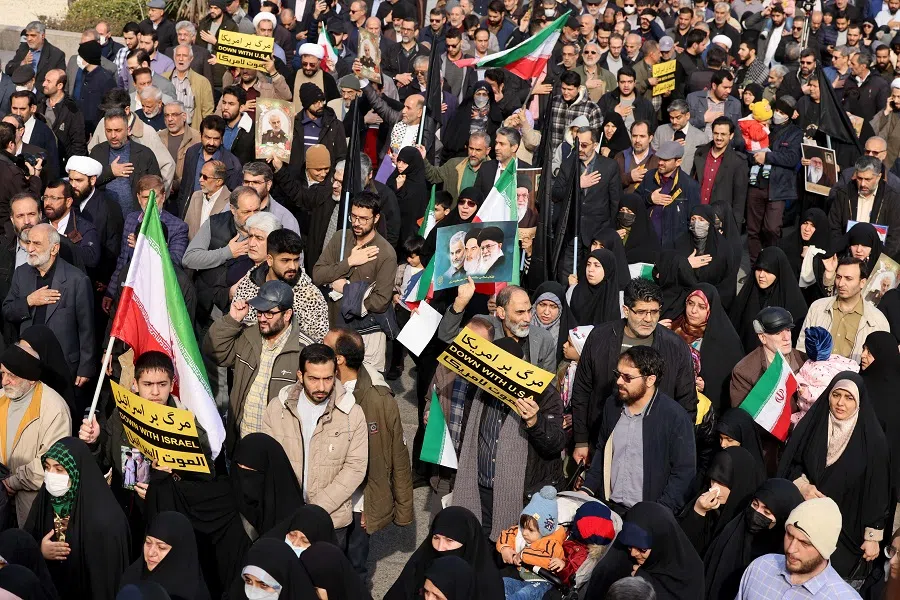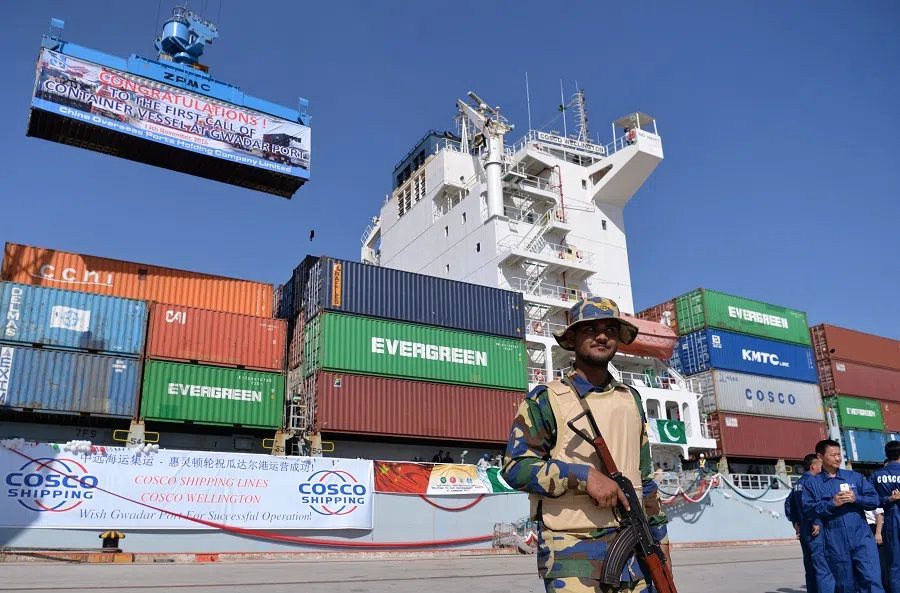Terrorist attack in Iran sends shockwaves closer to China's borders
With the latest 4 January bombing in Iran by the Islamic State, likely by the ISKP (Islamic State Khorasan Province) branch of the grouping, China is facing a renewed threat of one of its greatest fears: terrorism connecting the Middle East and Central Asia.

The Islamic State, a Sunni extremist group also known as ISIS, claimed responsibility for the 4 January bombing in Kerman, Iran, as per the extremist group's official Telegram account. The attack took the lives of more than 80 individuals during a memorial procession for Major General Qasem Soleimani, former commander of the Islamic Revolutionary Guard Corps (IRGC)'s Quds Force. Initial finger pointing at Israel by some Iranian leaders have escalated concerns from Beijing to Washington of broader conflict amid the Gaza war.
The looming escalating tensions in the Middle East pose significant challenges for Beijing, which has long declared its fight against the "three evils" of terrorism, separatism and extremism. With confrontations between Israel and Hamas, ongoing Houthi militant attacks involving commercial vessels in the Gulf of Aden, and the resurgence of ISIS, China's Belt and Road initiative (BRI) and Beijing's newfound role as a leading diplomatic force in the region face headwinds.
While China expressed condolences to Iran, strongly condemning the attack while voicing support for Iran's efforts to safeguard its national security and stability, Chinese experts stated that regardless of the perpetrators of this bombing, the prolonged Gaza conflict will exacerbate regional tensions especially as great powers will be forced to get involved.
The group opposes China's policies in Xinjiang and Beijing's backing of the Taliban.
ISKP sounds warning
At the time of writing, the most important question still stands: if ISIS is the culprit, which regional affiliate planned the bombings? The main suspect is the ISKP (Islamic State Khorasan Province), a regional branch of the Islamic State active primarily in Afghanistan, which is well-known for its intentions and prior records of carrying out terrorist attacks inside Iran.
It is not by chance that ISIS was bent on launching a strike during the memorial procession for Soleimani. Before his assassination by an American drone strike four years ago, Suleimani was considered the mastermind behind the alliance of Shiite groups across the Middle East led and funded by the Iranians. In this respect, eradicating his efforts in Syria and Iraq were instrumental in combating ISIS in the region.

If the bombing in Kerman portends a surge in ISKP activity from Iran to South and Central Asia in 2024, Chinese energy and mining ventures, ongoing infrastructure projects linked to the BRI, and especially the safety of Chinese residents in these regions could be threatened. The situation also stokes Beijing's decade-old fear of Islamic terrorism moving from the Middle East to Central Asia and finally reaching Xinjiang Uygur Autonomous Region. For quite some time, ISKP has had China in its sights.
However, it was not until the close of 2022, marked by a suicide bombing at a Chinese-owned hotel in Kabul, that the group began actively carrying out its intentions. The group opposes China's policies in Xinjiang and Beijing's backing of the Taliban. The ISKP is widely viewed by most counter-terrorist experts as the primary threat to Taliban rule in Afghanistan. The militant organisation's anti-Shia sectarian tendencies are coupled with anti-China and anti-Pakistan propaganda.
Hence, Beijing's resumption of the BRI in South and Central Asia following a pause due to Covid, coupled with the galvanisation of the group's supporters from the recent attack in Iran, serves as an additional catalyst for ISKP's hostility towards China.
Due to the porous border shared between Afghanistan and the unstable Pakistani province of Balochistan, where the Pakistan Economic Corridor (CPEC) worth US$65 billion terminates, ISKP has claimed that Chinese-led investments in the region are among their targets.
... this escalation could embolden other militant groups, particularly the Baloch separatists in southern Pakistan, that have already conducted violent attacks against China CPEC's core investments...
Possible domino effect of latest escalation
According to Lucas Webber, an expert on violent non-state actors, the ISKP has increased attacks on overseas targets, including diplomatic missions and foreign nationals, while internationalising its propaganda plan for global jihad.
Since the Taliban took over Afghanistan in August 2021, the ISKP's online propaganda has grown significantly pointing the finger at the Taliban's relationship with China and is currently generating content in many more languages than any other branch of ISIS.

Despite limited resources, ISKP leverages its 2000 militants, spread across independent cells, unified by the Islamic State's doctrine. Hence, the recent bombing in Iran, coupled with violent activities in Pakistan, Uzbekistan, Tajikistan, and Kyrgyzstan, marks a significant departure from mere rhetoric, potentially impinging on Chinese interests.
At the same time, this escalation could embolden other militant groups, particularly the Baloch separatists in southern Pakistan, that have already conducted violent attacks against China CPEC's core investments that culminated with the killing of numerous Chinese workers including three Chinese teachers from the University of Karachi's Confucius Institute in Karachi.
... Tehran's heightened counter-terrorism actions may inadvertently stoke unrest in Afghanistan, and Pakistan...
China's security interests under threat
Although ISIS has always threatened China from its former strongholds in Syria, ISKP has become the most anti-Chinese outfit inside the Islamic State and is the group that ultimately carries out its threats. Therefore, if proven, the group terrorist attack in Kerman also carries the intent to mobilise support among its members for even more brazen attacks. The year 2024 could witness ISKP's anti-Chinese stance progressing from rhetoric to action.
The terrorist strikes in Kerman, while failing to compel Tehran's engagement in the Gaza conflict or prompt direct US involvement in the regional crisis, leave the Iranian investigation's potential escalation uncertain. Confirming ISIS's responsibility may not ignite a broader regional conflict.
However, Tehran's heightened counter-terrorism actions may inadvertently stoke unrest in Afghanistan, and Pakistan, as well as unsettle the fragile equilibrium among Afghan and Baloch refugees sheltered in Iran.
Therefore, this presents significant geopolitical ramifications, possibly reshaping power dynamics closer to China's confines. Simultaneously, the Middle East teeters on the brink of expanding conflict, foreshadowing repercussions far beyond Gaza's border.





